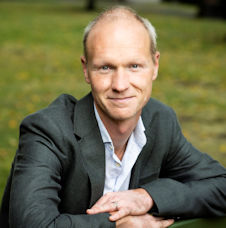Dr Tim Stuart-Buttle
Lecturer
Visit Dr Tim Stuart-Buttle's profile on the York Research Database to:
- See a full list of publications
- Browse activities and projects
- Explore connections, collaborators, related work and more
Profile
Biography
Tim joined the Department of Politics and International Relations in September 2017, as a Postdoctoral Research Fellow on the Leverhulme Trust-funded project Rethinking Civil Society: History, Theory, Critique. Tim’s research and teaching focuses on early modern European intellectual history, and the history of political thought.
Tim completed his doctorate at the University of Oxford in 2013. His thesis explored the importance of the late Hellenistic philosophical traditions, and especially a variety of academic scepticism identified closely with Cicero, to the development of British moral, religious and political thought from Locke to Hume. (A revised version of the thesis will be published as a monograph by Oxford University Press in early 2018.) From 2014-17 he was a postdoctoral Research Associate on the European Research Council-funded interdisciplinary project, Crossroads of Knowledge in Early Modern England: The Place of Literature, at the University of Cambridge. He is a Fellow of Clare Hall, Cambridge.
Research
Overview
I am an intellectual historian of early modern Europe. I work on the relationship between moral philosophy, theology and political thought, and on the shift from natural jurisprudence to political economy as the primary framework in which this relationship was addressed. In so doing, my focus is trained on the early modern debate over the origins and implications of human (un)sociability: a debate to which practically every contemporary philosopher of note contributed. My first monograph explored how British philosophers from Locke to Hume turned to the late Hellenistic world, and in particular to the writings of Cicero, as offering valuable insights into the origins and sustaining mechanisms of civil society. It also showed how the relationship between classical moral philosophy (such as Cicero’s), and revealed Christian moral theology, remained a vexed issue throughout the eighteenth century (not least in Scotland).
My new monograph project is provisionally entitled Recognition and Respect in Early Modern Philosophy: From Hobbes to Hegel, and (as the title suggests) adopts an ambitious chronological and geographical scope. It argues that early modern European philosophers were not concerned merely with how individuals ‘made’ civil societies, whether by contract or some other means. They were also deeply invested in the question of how civil societies ‘made’ rational and trustworthy individuals through processes of habituation and socialisation. From Hobbes onwards, one characteristic of human nature in particular received pronounced attention from European philosophers. This was the universal desire for esteem and recognition, which helped to explain why socialised individuals accommodated themselves to the norms – most importantly, the moral norms – which prevailed in their societies as a means of securing others’ approval. This pervasive emphasis on the malleability of the individual self was recognised to have deeply troubling implications for moral autonomy and personhood. Among those who made original contributions to this debate, I focus particularly on Hobbes, Nicole, Locke, Mandeville, Montesquieu, Rousseau, Hume, Ferguson, Smith and Hegel.
I have related interests in epistemology; contemporary political and critical theory; the history of scholarship; the reception and transmission of ancient philosophy, especially scepticism; the transnational movement of ideas; the history of print and the book; the comparative history of religion; early modern historiography; and the history of science.
Supervision
PhD Supervision:
- Michael Liu, John Locke's Christian philosophy (start of 2nd year)
Dr Tim Stuart-Buttle welcomes PhD applications in the following areas:
- History of political thought
- Early modern intellectual history
Publications
Selected publications
Monograph
From Moral Theology to Moral Philosophy: Cicero and Visions of Humanity from Locke to Hume (Oxford University Press, forthcoming 2018).
Edited volume
(With Subha Mukherji), Knowing Faith: Literature, Belief and Knowledge in Early Modern England (Palgrave Macmillan, Forthcoming 2018).
Journal articles
‘“A burthen too heavy for human sufferance”: Locke on reputation’, History of Political Thought, 38:4 (Winter 2017).
‘Shaftesbury reconsidered: Stoic ethics and the unreasonableness of Christianity’, Locke Studies, 15 (2016), pp. 161-211.
Book chapters
‘Hume, Cicero and eighteenth-century moral philosophy’, in Antiquity and Enlightenment Culture: New Approaches and Perspectives, ed. A. Johnston & F. Loughlin (Brill, under review).
‘Locke’s Cicero: between moral knowledge and faith’, in Knowing Faith: Literature, Belief and Knowledge in Early Modern England, ed. S. Mukherji & T. Stuart-Buttle (Palgrave Macmillan, Forthcoming 2018).
‘Gibbon, Hume and enlightenment history in Britain’, in The Cambridge Companion to Edward Gibbon, ed. K. O’Brien & B. Young (Cambridge University Press: Forthcoming 2017).
External activities
Invited talks and conferences
2017. (With Heikki Haara), ‘Beyond individualism: esteem, recognition and sociability in Pufendorf and Locke’ (part of a panel on ‘Recognition before Rousseau: esteem and self-love in the Western philosophical tradition’). Inclusion and Exclusion in the History of Ideas, organised by the Helsinki Centre for Intellectual History. University of Helsinki, 14-15 December.
2017. ‘Civil religion and civil society: the case of eighteenth-century Scotland’. Workshop organised by the Early Modern Civil Religion Group. University of Newcastle, 14 September.
2017. ‘Reading Cicero in the British Enlightenment’. The Rethinking of Religious Belief in the Making of Modernity, organised by the International Society for Intellectual History. American University in Bulgaria, 30 May – 1 June.
2017. ‘Locke and the “two provinces of knowledge”’. Scottish Seminar in Early Modern Philosophy VIII. University of Edinburgh, 10–11 April.
2017. ‘Locke’s reading of Castiglione: natural law, esteem and social constraint’. Renaissance Society of America annual conference. Chicago, 30 March – 1 April.
2016. ‘Conyers Middleton and Christian scepticism’. Priestcraft: Early Modern Variations. CRASSH, University of Cambridge, 1–2 September.
2016. ‘Risk and knowledge in early modern England’. Scientiae: Disciplines of Knowing in the Early Modern Worldannual conference. University of Oxford, 5–7 July.
2016. ‘Natural law, custom and history from Hooker to Locke’. Early Modern Philosophy and the Scientific Imagination seminar. SOAS, University of London, 14 May.
2016. ‘Hume’s “science of man”: secular ethics in a religious age’. Roundtable Discussion ofJames A. Harris’s Hume: An Intellectual Biography. University of Edinburgh, 11 March.

Contact details
https://rethinkingcivilsociety.org/

